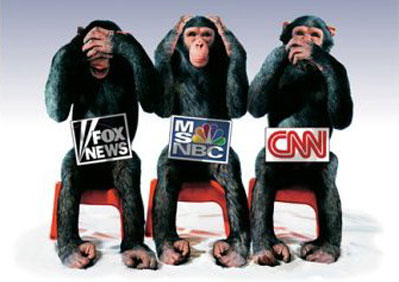
While there is nothing wrong watching the news on television, it is imperative for the prudent citizen to separate the reporting of facts from forecasting. Citing analysts, economists, or soothsayers as a measure for what to expect as a result of a particular occurrence is a regular extension of almost every news story in the modern times. Despite serving a purpose of entertaining the viewer, these forecasts are often spoken in sentences without significant distinction from the actual story.
A perfect example can be found in the last bubble, the commodity bubble. While oil was making an unprecedented and clearly unsubstantiated rise in price to its historic peak of $147 per barrel, news sources were reporting that analysts "predict" that prices shall hit $200 per barrel prior to the end of the year. Without making it abundantly clear what was fact and what was pure guessing, the general population went into a panic. In fact, the United States became so frightened that they made ludicrous decisions about trading in vehicles they currently owed money on for a tremendous loss in exchange for vehicles percieved as more efficient on a whim. To make matters more ridiculous, this panic stricken popuation even paid a premium for the less valuable economy vehicles. Between the loss on the current vehicle and the premium for the economy car, the break even on these iladvised transactions was over ten years. That's three times longer than the average life of ownership of a vehicle in the United States. Why? It was the unreasonable forecast that the unprecedented rise in fuel costs was going to continue forever.
More examples include, the Tech bubble, the Housing bubble, and now the recession. Do you remember opinions disguised as facts such as "business has changed and traditional ways of valuing a stock are no longer valid" or "No end in sight." More recently, the media has literally collapsed financial institutions by using the terms, "more to follow" when reporting on comments made by a New York Senator. This was not news, it was pure speculation. That speculation was taken as a fact. Under the same reasoning, the reporting of predictions of anyone for that matter is irresponsible if presented as fact. Regardless of a person's title, education or track record, their prediction of the future is as reliable as that of anyone else. Not at all.
Guessing is a jovial past time of humanity, I get it. There is something alluring about knowing what is going to happen before it happens. That said, people must be real with themselves. Warren Buffet, the single greatest investor to ever grace the planet, is successful because he never attempts to guess the future value of a stock. Rather, he buys a company when it is trading at a price so low that their exists a "margin of safety." In the simplest explanation, he buys a company for less than it is worth after evaluating the sum of its assets and earnings, and then simply waits for the market to realize that fact. The media and their self-annointed sense of relevance and importance is a ruse. The reporting of facts is of great value to a society, but it is equally important for that population to differentiate between fact and fairy tale.
CNBC literally reported that "investors were waiting until there was greater clarity of the future as things are currently foggy." HUH! You don't need your grandparents to tell you this is utter nonsense. One can never know the future, not even an idea of it. Its literally impossible and only the arrogance of a favorable current state or positive results would lead a person to think differently. This concept is as preposterous as watching grown intelligent people analyze charts of stocks and markets to forecast what the future shall bring. These decendents of delphi literally go to the extreme of naming charts such as a "v shaped recovery" or a "w recession." Its only convincing because it is on the news and the Nation's perception of authoritativeness that comes with that distinction. Seriously, if I knocked on your door with a chalk board and a title would you base your financial future on my drawings????!!!!
In closing, here is the dead givaway in distinguishingt when the news is no longer relevant. The words "could, should, may, expected and believe" are spoken. These words in a news story indicate the end of a factual statement and the beginning of an opinion. Remember facts and opinion are often placed into the same sentence to deliver a more interesting and sensationalist view to viewers.
Despite the fact that these opinions rarely, if ever, come true, very few news anchors or networks will retract them. While reporting false facts is a breach of the law, false opinions are protected by the First Amendment and considered fair reporting. The best we can hope as a society is that the citizens are able to tune out statements of opinion made without reflection or caution when deciding how to continue with their lives.




Very nice Mr. Greiner. I read the whole thing too. It wasn't too short. It wasn't too long. It was just right. Now Goldilocks is going to bed. xoxoBrent Abdulla
ReplyDelete